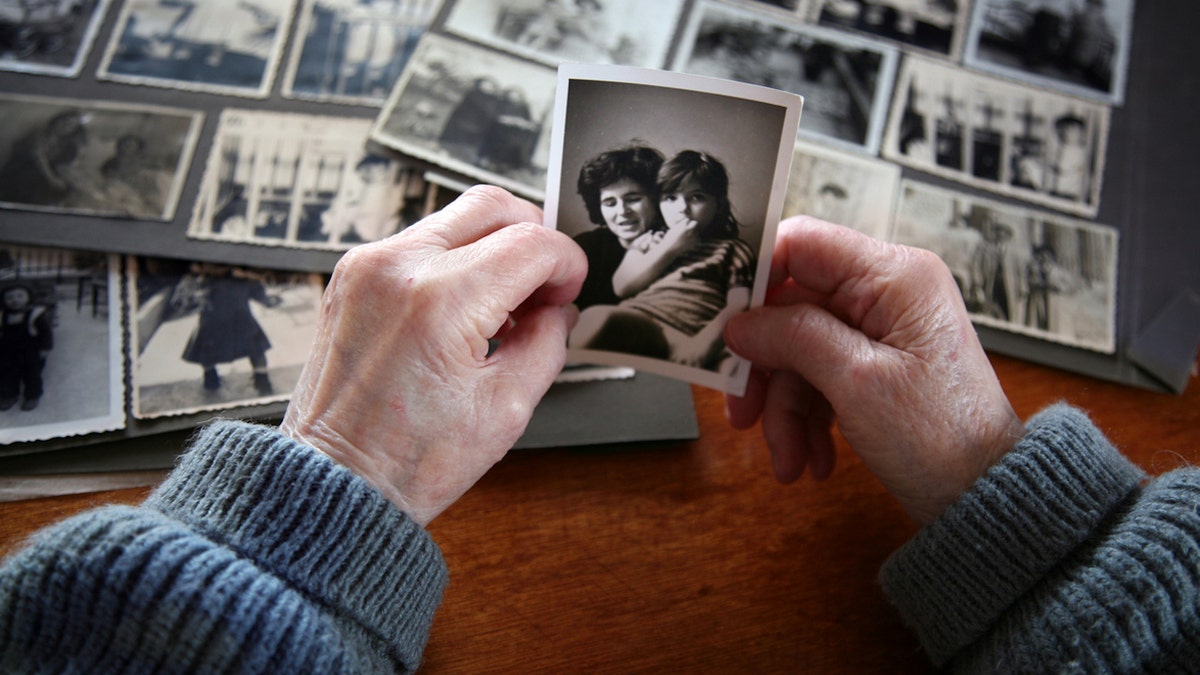Mother’s Day is a celebration for most. Yet for those who have lost their moms, it can be a difficult day marked by grief and isolation.
“The first year after any loss can be awful, but the holidays stand out in particular,” noted Rebecca Feinglos, a certified grief support specialist in North Carolina and founder of Grieve Leave, an online community to support grievers.
“Your first Mother’s Day after the death of your mom can make her absence feel even more real. It’s a stark reminder of the permanence of the loss.”
3 SURPRISING LESSONS AFTER LOSING A SPOUSE AND TRYING TO MOVE FORWARD IN LIFE: ‘STILL EVOLVING’
For those who had a close bond with their mother, Feinglos said the absence can feel like a “gaping hole” in their everyday lives.
“And for those whose relationships with their mothers were less than ideal, Mother’s Day can bring up a whole different set of emotions,” she said.
For those who have lost their mothers, Mother’s Day can be a difficult day to manage. A certified grief support specialist (not pictured) shares insights and help for coping. (iStock)
“There may be a mix of grief for the relationship they never had, along with anger or resentment over past hurts.”
“The key is to be intentional about how you want to spend the day.”
It doesn’t help that Mother’s Day is a highly publicized holiday with such an emphasis on the mother-child relationship, Feinglos said.
“Everywhere you turn, there are advertisements, social media posts and conversations centered around celebrating mothers,” she said.
MOTHERS SHARE STORIES OF THEIR LIVES, PLUS TIPS AND INSPIRATION, IN ‘LOVE, MOM’ BY DR. NICOLE SAPHIER
“For those who have recently lost their mom, this constant barrage of Mother’s Day messaging can feel like salt in the wound, regardless of the circumstances of their relationship.”

“For those who have recently lost their mom, [the] constant barrage of Mother’s Day messaging can feel like salt in the wound, regardless of the circumstances of their relationship,” an expert said. (iStock)
For those who are approaching their first Mother’s Day after losing a mom, Feinglos offered five tips for navigating the difficult emotions.
1. Make a plan
“Trust me, you don’t want to wake up on your first motherless Mother’s Day with no idea of how to spend the day,” Feinglos said.
“That’s a recipe for a major grief spiral and for potentially doom-scrolling other people’s ‘Happy Mother’s Day’ posts.”
The expert recommends thinking in advance about what you might want your day to look like — and then planning for it.
HOLIDAY GRIEF CAN BE HANDLED IN THESE 9 WAYS, ACCORDING TO MENTAL HEALTH EXPERTS
“It doesn’t have to be anything fancy. Maybe it’s watching your mom’s favorite movies on Netflix, ordering her favorite takeout, or going for a hike on a trail you used to walk together,” she said.
“The key is to be intentional about how you want to spend the day.”

“The first year after any loss can be awful, but the holidays stand out in particular,” a grief expert noted. (iStock)
If you do decide to venture out, Feinglos said, it’s important to be prepared for Mother’s Day-focused events, including restaurant menu specials.
“If that feels like too much to handle, consider having an at-home dinner plan instead,” she suggested.
2. Reach out to others
Grief can be isolating, Feinglos said, and it’s easy to feel like you’re the only one in the world who has ever felt this way.
“But when you’re open and willing to ask for help, you might be surprised by how much better you’ll feel just saying that you’re having a tough time,” she said.
“Your first Mother’s Day after the death of your mom can make her absence feel even more real.”
If you’re feeling overwhelmed or just need someone to talk to, Feinglos said to take the initiative in reaching out, rather than waiting for someone to contact you.
“Pick up the phone, send a text or even just post on social media about how you’re feeling,” she suggested.

Those who are grieving should reach out to family and friends for support, an expert advised. (iStock)
“I have a feeling that your community will be ready and willing to offer their support.”
3. Let people support you
Those who are grieving may be afraid that they’re a burden on friends and loved ones, Feinglos noted.
“But here’s the thing: The people who care about you want to be there for you,” she said.
MOTHER’S DAY: THE BEST ONE-LINERS AND LIFE ADVICE I’VE EVER GOTTEN FROM MOM
“So, when your best friend offers to come over on Mother’s Day and hang out, or your sibling suggests a family Zoom call, say yes. Letting others show up for you can make the day feel a little less overwhelming.”
4. Create a ritual to make space for your grief
One of the most meaningful things you can do on Mother’s Day, according to Feinglos, is to “intentionally create a ritual that makes space for your grief.”

Journaling or writing a letter to your late mother is one way to process your feelings on Mother’s Day. (iStock)
“That could mean writing your late mother a letter and burning it or casting it into a body of water, visiting a place that was special to both of you, listening to her favorite music — or doing something that reflects her values and passions,” she said.
The idea is to do something intentional that helps you feel connected to your mom, even though she’s not physically there, the expert said.
“By creating space for your grief, you’re giving yourself permission to feel all the complicated emotions that come with loss.”
“Your relationship with your person can continue even when they’ve died,” Feinglos said.
GRATITUDE OVERSHADOWS GREAT LOSS, SAYS AUTHOR OF BOOK ABOUT LOSING WIFE TO CANCER
“By creating space for your grief, you’re giving yourself permission to feel all the complicated emotions that come with loss.”
5. Know that there are different shades of grief
Grief doesn’t follow any rules or timelines, Feinglos said — and it can look completely different from one person to the next, especially because every bond is unique.
“There’s no one ‘normal’ way grief plays out,” she said.
“For some, it might hit like a tsunami of tears, especially on gut-punch days like Mother’s Day.”

It’s important not to suppress or ignore feelings of grief on Mother’s Day, a mental health expert said. (iStock)
“Maybe you vacillate between being present one moment and feeling utterly numb the next, laughing through tears one day and feeling bitter anger the next.”
On a day like Mother’s Day, Feinglos said, you might find that your thoughts loop back to your loved one regularly, or you could tend to avoid anything that could stir up memories.
CLICK HERE TO SIGN UP FOR OUR HEALTH NEWSLETTER
Whatever way your grief manifests, Feinglos emphasized the importance of not trying to suppress or ignore it.

“At its core, grief underscores one truth: You’re alive, you’re human, and you’re going through a loss,” an expert said. (iStock)
“When we disregard our grief, it can pop back up in ways that are really inconvenient, or even scary — like lashing out at loved ones, feeling hopeless or [engaging in] risky behaviors,” she told Fox News Digital.
“Give yourself the space and time to relearn what your life is like now with this loss in mind,” she continued.
CLICK HERE TO GET THE FOX NEWS APP
“At its core, grief underscores one truth: You’re alive, you’re human, and you’re going through a loss.”
For more Health articles, visit www.foxnews.com/health.

